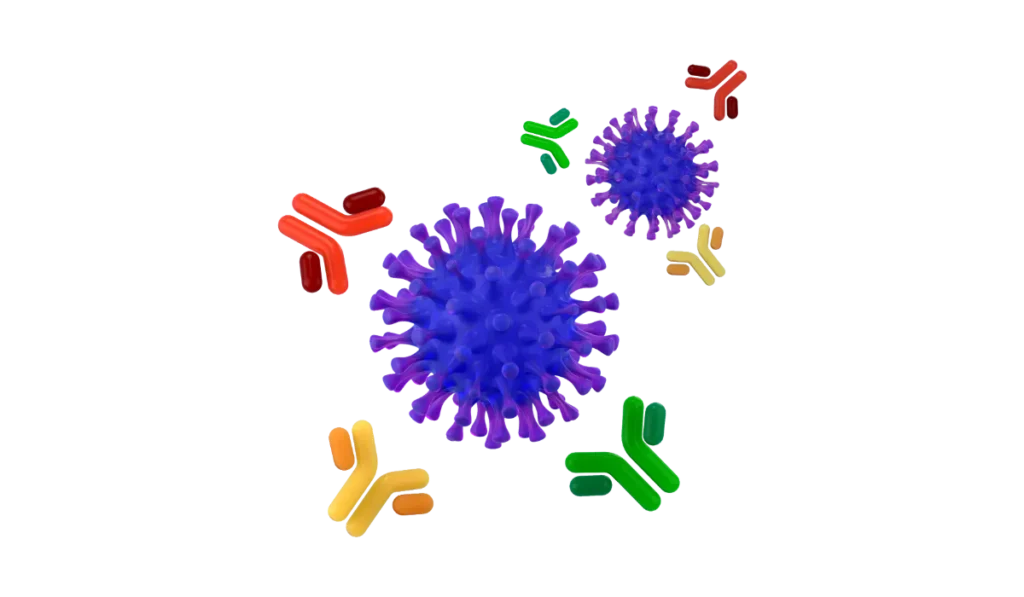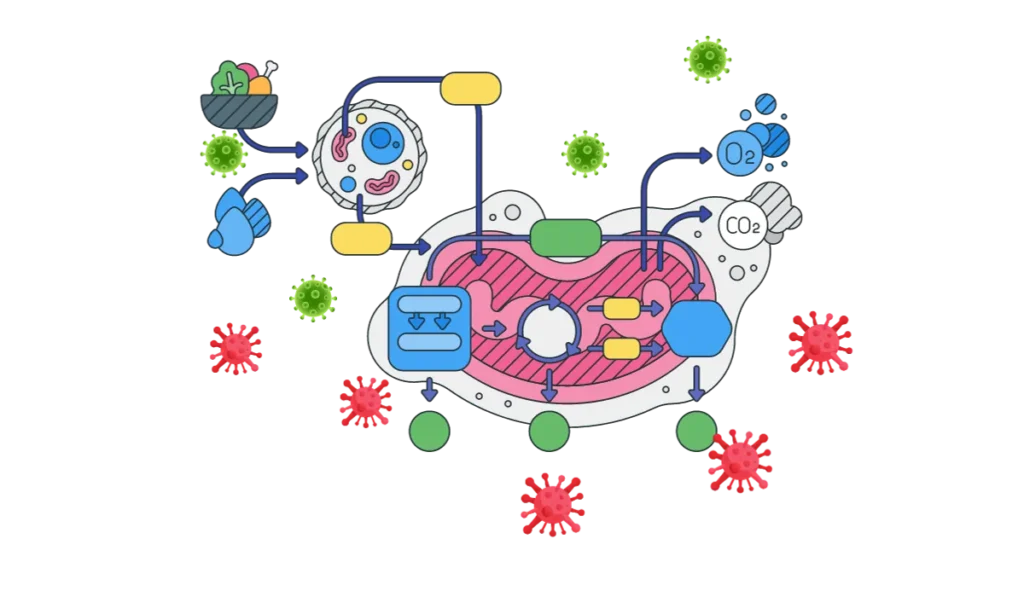Proven Keys to Infant Microbiota and Brain Development
Explore the crucial role of infant microbiota in brain development. Essential insights for health planning.

Key Points
- Infant Microbiota and Brain Development: The microbiota in infants plays a critical role in brain development. This includes influencing neurodevelopmental processes such as synapse formation, axon myelination, and neurogliocyte expansion. Microbial metabolites, like short-chain fatty acids (SCFAs), play a pivotal role in this process.
- Immune System Development and Microbiota: The diversity and composition of the infant microbiota are crucial for immune system development. This includes impacting the permeability of the blood-brain barrier and the release of intestinal peptides essential for immune regulation.
- Microbial Metabolites in Immune Regulation: Microbial metabolites, especially SCFAs, are significant in modulating immune responses. They interact with receptors on host cells, influencing immune system development and immune regulation.
- Behavioral and Cognitive Implications: The gut microbiota is associated with cognitive abilities and behaviors in infants, indicating its broader influence on early life development.
- Environmental Influences and Microbiota Disruptions: Factors like maternal exposure and antibiotic use can significantly alter infant microbiota, impacting health outcomes like asthma, allergies, and metabolic disorders.
The Role of Infant Microbiota in Future Health
The microscopic world of infant microbiota, present from birth, plays a crucial role in future health planning, influencing everything from brain development to immune system development.

This relationship is not just fleeting but has significant implications for future health planning.
Let's delve into this fascinating connection and understand how the infant microbiota is integral to our health and well-being.
Infant Brain Development: A Microbiota-Driven Process
During the first two years, a critical period for brain development, the infant microbiota undergoes significant establishment, impacting future cognitive growth.
Remarkably, a newborn's brain, which is roughly a third of an adult's brain size, expands to almost 90% of that by age two A Trusted Source Diaz Heijtz R. Fetal, Neonatal, and Infant Microbiome: Perturbations and Subsequent Effects on Brain Development and Behavior. Semin Fetal Neonatal Med (2016) 21(6):410–7. doi: 10.1016/j.siny.2016.04.012 PubMed AbstractCrossRef Full TextGoogle Scholar.
This phase includes the growth of axons and dendrites, synapse formation, neurogliocyte expansion, and axon myelination.
The gut microbiota's establishment during this "golden period" is essential for healthy brain development A Trusted Source Diaz Heijtz R. Fetal, Neonatal, and Infant Microbiome: Perturbations and Subsequent Effects on Brain Development and Behavior. Semin Fetal Neonatal Med (2016) 21(6):410–7. doi: 10.1016/j.siny.2016.04.012 PubMed AbstractCrossRef Full TextGoogle Scholar.
A Chinese proverb says, "pull one hair and the whole body is affected," aptly describing the gut microbiota's role in brain development.
Microbial metabolites from infant microbiota can traverse the intestinal barrier, playing a pivotal role in brain development and immune regulation A Trusted Source Lu J, Claud EC. Connection Between Gut Microbiome and Brain Development in Preterm Infants. Dev Psychobiol (2019) 61(5):739–51. doi: 10.1002/dev.21806 PubMed AbstractCrossRef Full TextGoogle Scholar.
For instance, bacteria-produced indigenous spores stimulate serotonin synthesis in enterochromaffin cells, regulating serotonin levels in various body parts A Trusted Source Yano JM, Yu K, Donaldson GP, Shastri GG, Ann P, Ma L, et al. Indigenous Bacteria From the Gut Microbiota Regulate Host Serotonin Biosynthesis. Cell (2015) 161(2):264–76. doi: 10.1016/j.cell.2015.02.047PubMed AbstractCrossRef Full TextGoogle Scholar.
Short-chain fatty acids (SCFAs), another product of gut microbiota, directly affect the nervous system through G protein-coupled receptors A Trusted Source Yao Y, Cai X, Fei W, Ye Y, Zhao M, Zheng C. The Role of Short-Chain Fatty Acids in Immunity, Inflammation and Metabolism. Crit Rev Food Sci Nutr (2020) 1–12. doi: 10.1080/10408398.2020.1854675 PubMed AbstractCrossRef Full TextGoogle Scholar A Trusted Source Muller PA, Schneeberger M, Matheis F, Wang P, Kerner Z, Ilanges A, et al. Microbiota Modulate Sympathetic Neurons via a Gut-Brain Circuit. Nature (2020) 583(7816):441–6. doi: 10.1038/s41586-020-2474-7 PubMed AbstractCrossRef Full TextGoogle Scholar.
These SCFAs are pivotal in the development of the fetal intestine, pancreas, and nerves A Trusted Source Kimura I, Miyamoto J, Ohue-Kitano R, Watanabe K, Yamada T, Onuki M, et al. Maternal Gut Microbiota in Pregnancy Influences Offspring Metabolic Phenotype in Mice. Science (2020) 367(6481):eaaw8429. doi: 10.1126/science.aaw8429 PubMed AbstractCrossRef Full TextGoogle Scholar
and are also involved in the maturation of microglia, a type of glial cell in the brain A Trusted Source Erny D, Hrabe de Angelis AL, Jaitin D, Wieghofer P, Staszewski O, David E, et al. Host Microbiota Constantly Control Maturation and Function of Microglia in the CNS. Nat Neurosci (2015) 18(7):965–77. doi: 10.1038/nn.4030 PubMed AbstractCrossRef Full TextGoogle Scholar.
Gut Microbiota and Immune System Development: A Symbiotic Relationship
The impact of infant microbiota extends to immune system development, laying the foundation for future health and immune regulation.
The permeability of the blood-brain barrier (BBB) is influenced by these microbial communities.
For instance, in germ-free mice, the BBB's permeability is increased, but administration of sodium butyrate, a type of SCFA, can correct this defect A Trusted Source Braniste V, Al-Asmakh M, Kowal C, Anuar F, Abbaspour A, Toth M, et al. The Gut Microbiota Influences Blood-Brain Barrier Permeability in Mice. Sci Transl Med (2014) 6(263):263ra158. doi: 10.1126/scitranslmed.3009759 PubMed AbstractCrossRef Full TextGoogle Scholar.

Furthermore, the diversity within the gut microbiota correlates with the release of crucial intestinal peptides like oxytocin and ghrelin, which are essential for immune regulation A Trusted Source Lach G, Schellekens H, Dinan TG, Cryan JF. Anxiety, Depression, and the Microbiome: A Role for Gut Peptides. Neurotherapeutics (2018) 15(1):36–59. doi: 10.1007/s13311-017-0585-0 PubMed AbstractCrossRef Full TextGoogle Scholar.
Behavioral Implications: How Gut Microbiota Shapes Our Early Life
Recent studies suggest that the diversity of gut microbiota is associated with cognitive abilities in infants A Trusted Source Lu J, Claud EC. Connection Between Gut Microbiome and Brain Development in Preterm Infants. Dev Psychobiol (2019) 61(5):739–51. doi: 10.1002/dev.21806 PubMed AbstractCrossRef Full TextGoogle Scholar.
This finding hints at a broader influence where gut microbiota can shape not only individual behaviors but also social behaviors from an early age A Trusted Source Sampson TR, Mazmanian SK. Control of Brain Development, Function, and Behavior by the Microbiome. Cell Host Microbe (2015) 17(5):565–76. doi: 10.1016/j.chom.2015.04.011 PubMed AbstractCrossRef Full TextGoogle Scholar.
Thus, the role of gut microbiota extends beyond physical health, touching upon the very essence of human behavior and interaction.
Explore our range of educational toys that encourage cognitive growth and brain development in infants.
The Pivotal Role of Infant Microbiota in Immune System Development and Future Health
Infant microbiota, with its diverse microbial populations, plays a critical role in immune system development and future health planning.
This fascinating relationship between the microbiota and our health has profound implications for future health planning, particularly in the areas of immune system development and brain development.
Shaping the Immune System from Birth
From birth, the complex world of infant microbiota begins shaping both innate and adaptive immunity, crucial for immune regulation.
This process is crucial for guiding the immune system to a normal state of operation A Trusted Source Spor A, Koren O, Ley R. Unravelling the Effects of the Environment and Host Genotype on the Gut Microbiome. Nat Rev Microbiol (2011) 9(4):279–90. doi: 10.1038/nrmicro2540 PubMed AbstractCrossRef Full TextGoogle Scholar.
The microbiota on the mucosal surfaces, such as the gut lining, undergoes dynamic changes in early life, eventually reaching a stable equilibrium,
essential for long-term health planning in the absence of disturbances A Trusted Source Spor A, Koren O, Ley R. Unravelling the Effects of the Environment and Host Genotype on the Gut Microbiome. Nat Rev Microbiol (2011) 9(4):279–90. doi: 10.1038/nrmicro2540 PubMed AbstractCrossRef Full TextGoogle Scholar.
Microbial Colonization and Immune Maturation
The colonization of microbes in mucosal tissues and the subsequent shaping of the immune system happen simultaneously in early life.
This process means that the microbiota can directly or indirectly influence the maturation of the immune system.
Newborns' immune systems differ significantly from adults, often developing tolerance in response to pathogen invasion A Trusted Source Sarzotti M, Robbins DS, Hoffman PM. Induction of Protective CTL Responses in Newborn Mice by a Murine Retrovirus. Science (1996) 271(5256):1726–8. doi: 10.1126/science.271.5256.1726 PubMed AbstractCrossRef Full TextGoogle Scholar,
making the period right after birth critical for immune system development A Trusted Source Ridge JP, Fuchs EJ, Matzinger P. Neonatal Tolerance Revisited: Turning on Newborn T Cells With Dendritic Cells. Science (1996) 271(5256):1723–6. doi: 10.1126/science.271.5256.1723 PubMed AbstractCrossRef Full TextGoogle Scholar A Trusted Source Forsthuber T, Yip HC, Lehmann PV. Induction of TH1 and TH2 Immunity in Neonatal Mice. Science (1996) 271(5256):1728–30. doi: 10.1126/science.271.5256.1728 PubMed AbstractCrossRef Full TextGoogle Scholar.
Nourish your baby with our immune-boosting foods, packed with essential nutrients for a robust immune system.
The Role of Microbial Metabolites in Immune Regulation
Microbial metabolites, a key component of infant microbiota, play a vital role in immune system development and regulation.

These metabolites can act directly on mucosal surfaces or enter the bloodstream, influencing immune responses A Trusted Source Rooks MG, Garrett WS. Gut Microbiota, Metabolites and Host Immunity. Nat Rev Immunol (2016) 16(6):341–52. doi: 10.1038/nri.2016.42 PubMed AbstractCrossRef Full TextGoogle Scholar.
For example, short-chain fatty acids (SCFAs), a product of dietary fiber fermentation, significantly affect the immune system.
Other microbial metabolites bind to specific receptors on host cells, including aryl hydrocarbon receptor (AHR), G protein-coupled receptors, and Toll-like receptors (TLRs), modulating immune responses.
Microbial Components in Innate Immunity
Pattern recognition receptors (PRRs), a crucial part of innate immunity, are responsible for detecting and responding to various microbial components, including those from fungi, viruses, and bacteria.
These components, such as peptidoglycans and lipopolysaccharides, activate PRRs, leading to the release of chemokines and cytokines,
playing a significant role in disease occurrence and immune response A Trusted Source Rooks MG, Garrett WS. Gut Microbiota, Metabolites and Host Immunity. Nat Rev Immunol (2016) 16(6):341–52. doi: 10.1038/nri.2016.42 PubMed AbstractCrossRef Full TextGoogle Scholar A Trusted Source Yuan M, Jiang Z, Bi G, Nomura K, Liu M, Wang Y, et al. Pattern-Recognition Receptors Are Required for NLR-Mediated Plant Immunity. Nature (2021) 592(7852):105–9. doi: 10.1038/s41586-021-03316-6 PubMed AbstractCrossRef Full TextGoogle Scholar.
Support your infant’s microbiota with our carefully formulated probiotic supplements, designed to enhance digestive health and aid brain development.
The Critical Role of Infant Microbiota in Early Life Health and Future Wellness
The microbiota in early life, the community of microorganisms in our gut, plays a pivotal role in shaping our immediate and future health.
This intricate relationship between infant microbiota, brain development, and immune system development has significant implications for long-term health planning.
Infant Microbiota: A Foundation for Health
From the very beginning, the normal microbiota in infants positively influences health.
However, disturbances in this microbiota can lead to various issues, including brain dysplasia, immune system defects, and metabolic disorders A Trusted Source Saavedra JM, Dattilo AM. Early Development of Intestinal Microbiota: Implications for Future Health. Gastroenterol Clin North Am (2012) 41(4):717–31. doi: 10.1016/j.gtc.2012.08.001 PubMed AbstractCrossRef Full TextGoogle Scholar .
The factors influencing the formation of the infant microbiota are crucial for creating strategies to minimize both early interference and long-term health impacts.
Microbiota and Brain Development
The gut microbiota in infants is widely recognized for its role in brain development and immune system shaping.
Normal microbial communication with the host contributes to metabolism and immunity in early life A Trusted Source Houghteling PD, Walker WA. Why Is Initial Bacterial Colonization of the Intestine Important to Infants’ and Children’s Health? J Pediatr Gastroenterol Nutr (2015) 60(3):294–307. doi: 10.1097/MPG.0000000000000597 PubMed AbstractCrossRef Full TextGoogle Scholar.
A lack of specific microbiota during this crucial time can lead to inflammatory or allergic diseases later in life, such as asthma and inflammatory bowel disease (IBD) A Trusted Source Olszak T, An D, Zeissig S, Vera MP, Richter J, Franke A, et al. Microbial Exposure During Early Life has Persistent Effects on Natural Killer T Cell Function. Science (2012) 336(6080):489–93. doi: 10.1126/science.1219328 PubMed AbstractCrossRef Full TextGoogle Scholar.
Environmental Influences on Microbiota
Maternal exposure to agriculture during pregnancy can reduce asthma risk in offspring A Trusted Source Dicksved J, Floistrup H, Bergstrom A, Rosenquist M, Pershagen G, Scheynius A, et al. Molecular Fingerprinting of the Fecal Microbiota of Children Raised According to Different Lifestyles. Appl Environ Microbiol (2007) 73(7):2284–9. doi: 10.1128/AEM.02223-06PubMed AbstractCrossRef Full TextGoogle Scholar,
possibly mediated by increased microbiota diversity due to this exposure A Trusted Source Twardziok M, Schroder PC, Krusche J, Casaca VI, Illi S, Bock A, et al. Asthmatic Farm Children Show Increased CD3(+)CD8(low) T-Cells Compared to Non-Asthmatic Farm Children. Clin Immunol (2017) 183:285–92. doi: 10.1016/j.clim.2017.09.009 PubMed AbstractCrossRef Full TextGoogle Scholar.
Conversely, antibiotic use in the first six months of life is linked to higher risks of asthma and allergies at six years A Trusted Source Risnes KR, Belanger K, Murk W, Bracken MB. Antibiotic Exposure by 6 Months and Asthma and Allergy at 6 Years: Findings in a Cohort of 1,401 US Children. Am J Epidemiol (2011) 173(3):310–8. doi: 10.1093/aje/kwq400 PubMed AbstractCrossRef Full TextGoogle Scholar.
Antibiotics administered within the first year are also associated with increased risks of type 2 diabetes A Trusted Source Markle JG, Frank DN, Mortin-Toth S, Robertson CE, Feazel LM, Rolle-Kampczyk U, et al. Sex Differences in the Gut Microbiome Drive Hormone-Dependent Regulation of Autoimmunity. Science (2013) 339(6123):1084–8. doi: 10.1126/science.1233521 PubMed AbstractCrossRef Full TextGoogle Scholar,
type 1 diabetes, overweight, and eczema, related to changes in the infant microbiota A Trusted Source Mai XM, Kull I, Wickman M, Bergstrom A. Antibiotic Use in Early Life and Development of Allergic Diseases: Respiratory Infection as the Explanation. Clin Exp Allergy (2010) 40(8):1230–7. doi: 10.1111/j.1365-2222.2010.03532.x PubMed AbstractCrossRef Full TextGoogle Scholar A Trusted Source Boursi B, Mamtani R, Haynes K, Yang YX. The Effect of Past Antibiotic Exposure on Diabetes Risk. Eur J Endocrinol (2015) 172(6):639–48. doi: 10.1530/EJE-14-1163 PubMed AbstractCrossRef Full TextGoogle Scholar.
Gain insights on optimizing your infant's health with our selection of books, focusing on nutrition's role in microbiota and brain development.

Future of Microbiota Research: Key Directions and Innovations
As we delve deeper into the world of microbiota, the tiny but mighty organisms living within us, it becomes evident how crucial they are to our overall health.
Research in this field is rapidly evolving, opening new doors for understanding how these microscopic inhabitants influence everything from brain development to immune system functioning.
Let's explore the exciting future directions of microbiota research.
Unraveling Microbiome Composition
Advancements in high-throughput DNA sequencing and 16s RNA technology have revolutionized our ability to classify microbial populations without the need for culturing.
This leap in technology is pivotal for characterizing microbiome composition, a primary focus in understanding the role of microbiota in health and disease A Trusted Source Vujkovic-Cvijin I, Sklar J, Jiang L, Natarajan L, Knight R, Belkaid Y. Host Variables Confound Gut Microbiota Studies of Human Disease. Nature (2020) 587(7834):448–54. doi: 10.1038/s41586-020-2881-9 PubMed AbstractCrossRef Full TextGoogle Scholar.
Decoding Microbiota Functions
Exploring the functions of microbiota has become more accessible with hypertranscriptome sequencing and macrogenomics.
Unraveling the specific roles of microbiota or individual microbes helps in clearly understanding their impact on the host's health or disease state.
Understanding the Microbiota-Disease Connection
There's a growing need to distinguish between causation and correlation in the relationship between microbiota and host diseases.
Past treatment methods based on micro-ecology haven't always yielded expected results,
leading researchers to reevaluate their conclusions and consider host variables more comprehensively in their studies A Trusted Source Ni J, Wu GD, Albenberg L, Tomov VT. Gut Microbiota and IBD: Causation or Correlation? Nat Rev Gastroenterol Hepatol (2017) 14(10):573–84. doi: 10.1038/nrgastro.2017.88 PubMed AbstractCrossRef Full TextGoogle Scholar.
Analyzing Microbial Metabolites and Components
The use of mass spectrometry and chromatography has been crucial in analyzing microbial metabolites or components A Trusted Source Lichtman JS, Marcobal A, Sonnenburg JL, Elias JE. Host-Centric Proteomics of Stool: A Novel Strategy Focused on Intestinal Responses to the Gut Microbiota. Mol Cell Proteomics (2013) 12(11):3310–8. doi: 10.1074/mcp.M113.029967 PubMed AbstractCrossRef Full TextGoogle Scholar A Trusted Source Sridharan GV, Choi K, Klemashevich C, Wu C, Prabakaran D, Pan LB, et al. Prediction and Quantification of Bioactive Microbiota Metabolites in the Mouse Gut. Nat Commun (2014) 5:5492. doi: 10.1038/ncomms6492 PubMed AbstractCrossRef Full TextGoogle Scholar.
Both targeted and untargeted approaches in proteomics and metabolomics are being employed to reveal the diversity of these metabolites or components, offering new opportunities for disease diagnosis and treatment.
Isolating Individual Microbial Strains
A significant challenge in this field is the isolation of individual strains or species within microbial communities.
Capturing and analyzing the characteristics of these individual species is essential for advancing our understanding of microbial communities.
Tracing Microbial Interactions
Understanding the complex interactions between microbiota and the host remains a daunting task.
Microbial tracing provides 'visual proof' of the ecological specificity of these organisms, paving the way for a deeper understanding of how microbiota function within the host.
Discussion
- The intricate relationship between infant microbiota, brain development, and immune system development suggests that early microbial composition has lasting effects on health.
- The role of microbial metabolites in brain and immune system development highlights the interconnectedness of various body systems.
- Environmental factors and their influence on the infant microbiota underscore the need for careful consideration in early health interventions and antibiotic use.
Conclusion
- Understanding and maintaining a healthy infant microbiota is crucial for future health planning. It plays a foundational role in brain development, immune system development, and overall health.
- The study of microbial metabolites offers promising avenues for understanding and potentially manipulating these interactions for health benefits.
- Future research should focus on deciphering the complexities of the infant microbiota and its long-term impact on health, considering the evolving landscape of environmental factors and medical interventions.
FAQs
What is the microbiota of a newborn?
What are the gut microbiota during infancy?
What are the three stages of infant microbiome development?
1. Prenatal stage: The microbiome of a fetus begins to develop during pregnancy and is influenced by the mother's microbiome.
2. Birth stage: During delivery, the baby is exposed to the mother's vaginal or skin microbiota, which starts to colonize the baby's gut and skin.
3. Postnatal stage: After birth, the baby's microbiome continues to develop and is shaped by various factors such as breastfeeding, diet, environment, and exposure to microbes.
What is the primary bacteria in the infant's gut?
Review date not set.
How we reviewed this article:
Latest on:





